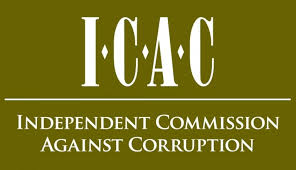
This is not the first time the NSW anti-corruption agency has withheld exculpatory evidence. But it needs to be the last.
It has now happened under two commissioners: David Ipp was in charge at the time Craig Ransley was caught up in the Acacia inquiry; and Megan Latham had replaced Ipp by the time the commission handed down its report on former Emergency Services Commissioner Murray Kear.
This looks like something went terribly wrong lower down the totem pole. In both cases, innocent men faced criminal charges based on ICAC’s investigations.
In both cases, someone inside ICAC withheld certain evidence that tended to undermine the commission’s findings and favour the men on trial.
Critically important exculpatory evidence might have remained hidden forever but for the tenacity of the defence lawyers working for Kear and Ransley. They forced ICAC to do what it should have done in the first place.
These cases suggest there has been a serious failure in the way this agency’s officials discharge one of their main duties.
Two men came very close to going to prison on charges that were incapable of being supported by the evidence — once all of the relevant material was considered.
These incidents need to be thoroughly examined to determine who was responsible and whether their actions were motivated by malice — which could mean criminality — or mere incompetence.
The fact that these incidents took place suggests ICAC’s officers need more rigorous management.
This is in line with one of the proposed changes in the last big tranche of reforms for this trouble-prone agency.
This is not a trivial matter. The Kear and Ransley cases show that the level of management oversight inside this agency is so lax that it amounts to a threat to the integrity of the criminal justice system. This needs to be addressed.
Until recently, it looked like the reform plan enacted by the NSW government was about to result in a structural separation between the quasi-judicial commissioners, and management of day-to-day operations.
A chief executive was to take charge of daily operations, as proposed by parliament’s ICAC oversight committee and the Department of Premier and Cabinet.
But the new chief commissioner, Peter Hall, has other ideas. At his last appearance before the oversight committee, he made it clear he wanted to downgrade the role of the proposed chief executive and make it a part-time position, possibly for someone who had recently retired.
If ICAC were working perfectly, he might have a point. But this agency’s conduct in the Kear and Ransley cases has been disgraceful. Nobody has been held to account and now nothing looks like changing.
Chris Merritt
